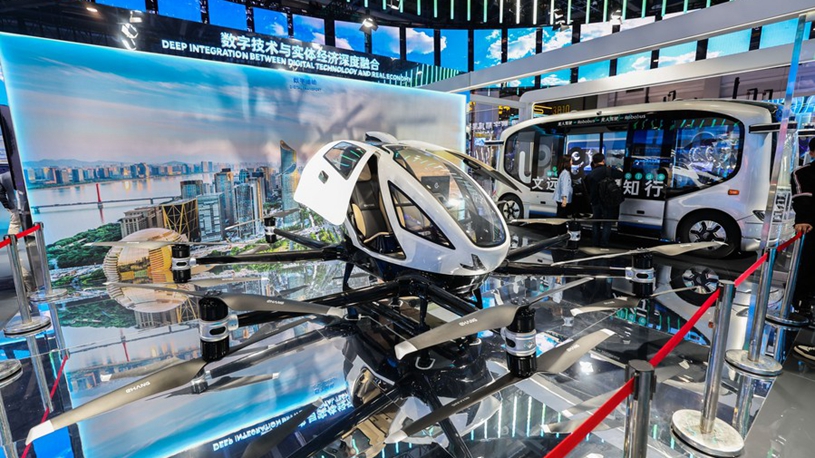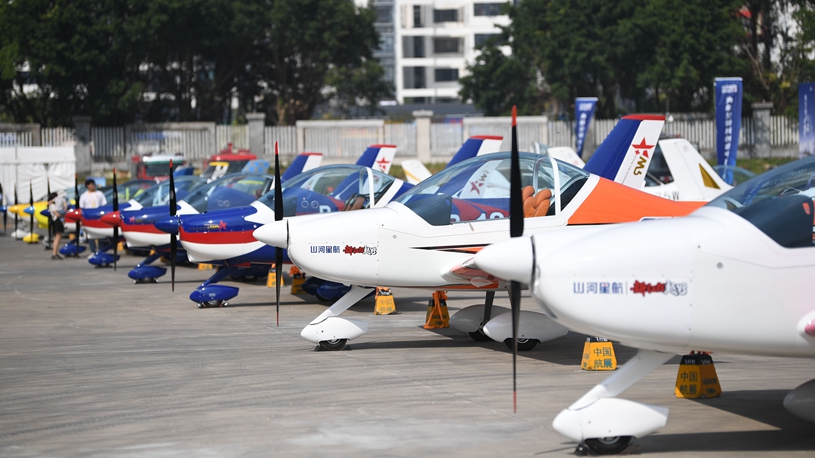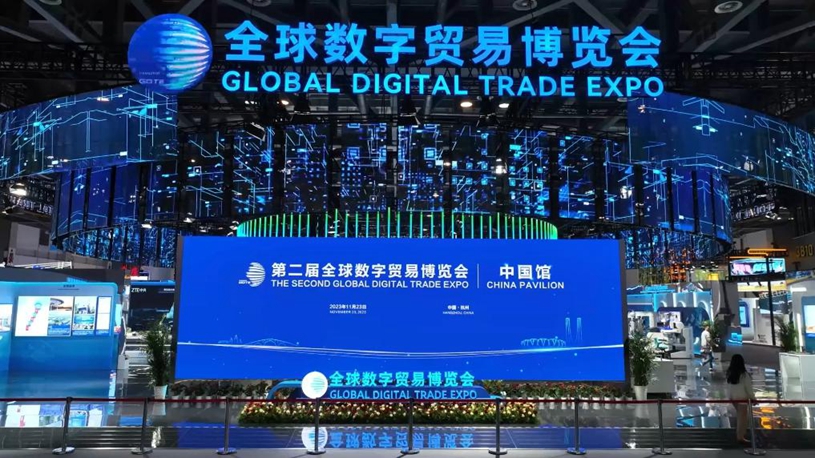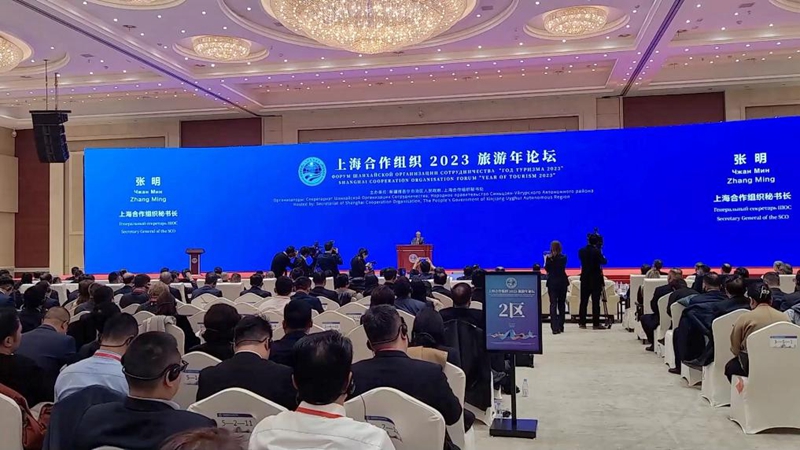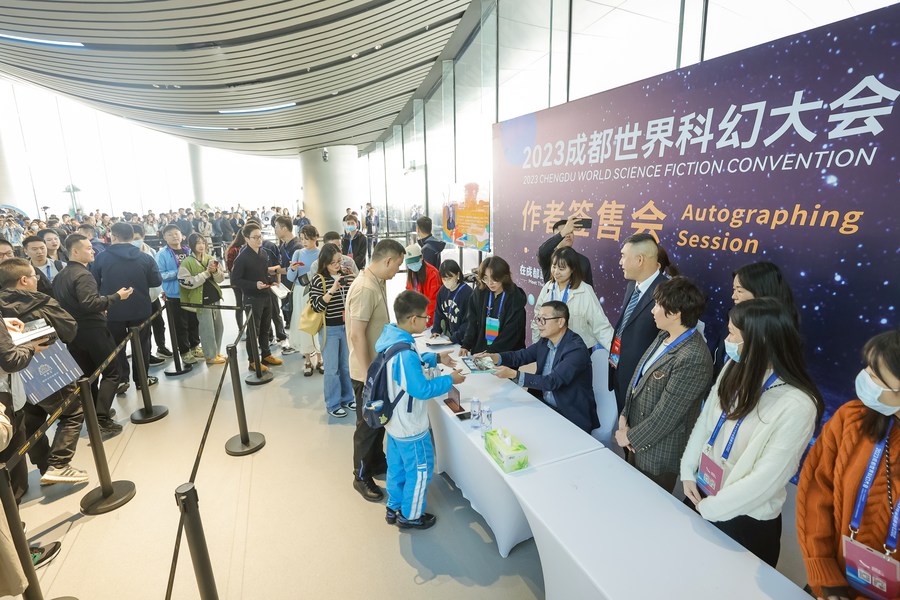
Hugo Award winner Liu Cixin (6th R) autographs for sci-fi lovers during the 81st World Science Fiction Convention (WorldCon) in Chengdu, southwest China's Sichuan Province, Oct. 20, 2023. (Xinhua/Shen Bohan)
BEIJING, Nov. 27 (Xinhua) -- Luisa Maria Bosia, an Italian fan of Chinese sci-fi, is looking forward to the upcoming 12th China-Italy Innovation Forum, because "sci-fi is tightly linked with science and tech, since it stems from their development and the possible outcomes they can have on society."
This year's edition of the China-Italy Innovation Forum is scheduled to be held from Tuesday to Wednesday in Shougang Park, Beijing, and will aim at helping strengthen respective national research and innovation systems by promoting academic, scientific and technological exchanges between China and Italy.
Bosia, who has been learning Chinese language since high school and studied in China for years, expects more cooperation between her motherland and China in the near future. "Collaboration is always a better option than individual research, since different minds can bring new and unique perspectives that might improve the overall result."
On her bookshelf, there are several Chinese sci-fi works which she especially cherishes. These translated books have impressed the 23-year-old woman with their rich imagination and unique cultural charm.
In the spring of 2016, she encountered Chinese sci-fi for the first time. "I got the entire trilogy of 'The Three-Body Problem', together with other few sci-fi novels in English," said Bosia.
As part of her in-depth study of the Chinese language and culture, Bosia got stuck into these Chinese sci-fi novels. "Their psychological and humanistic approaches to the concept of the future are impressive."
The Chinese novels drove the young fan to participate in a dual degree program offered by the Capital Normal University in China. Her graduation paper focused on the Chinese sci-fi boom in the Italian market.
"Through investigation and analysis, I can say without doubt that Chinese sci-fi has become a worldwide phenomenon, as we can easily see from the increasing number of international awards won by Chinese sci-fi, and from the interest shown by international platforms like Netflix in creating TV adaptations of Chinese sci-fi stories," said Bosia.
During her studies in China, the sci-fi enthusiast even designed a questionnaire and surveyed more than 100 Italian people of all ages and backgrounds, in order to better trace the reasons behind Chinese sci-fi's success in Italy.
Bosia found that Italian publishers began sporadically publishing Chinese science fiction from the 1980s onwards, while currently a growing number of Italian publishers are publishing Chinese science fiction, with Italy's largest publisher, Arnoldo Mondadori Editore, opting to publish the globally successful and widely acclaimed "The Three-Body Problem."
In addition, the independent international sci-fi publishing project Future Fiction has published in excess of 160 e-books and 60 printed books from more than 30 countries and translated such works from over a dozen languages. Among these, Chinese sci-fi enjoys a prominent presence.
The publication of the bilingual anthology of Chinese sci-fi titled "Nebula" serves as a vivid illustration of the Chinese sci-fi boom in Italy, as the book became a hit with Italian readers and more than 1,200 copies were sold at that time, according to Bosia.
Bosia contributes worldwide recognition and praise of Chinese sci-fi to China's development over recent years.
"Chinese culture has lately for sure gained more traction than in the decades before and China's opening up has played a bigger part in the increase of its soft power," she concluded, adding that regarding sci-fi specifically, technological advancements have presented a series of ethical and sociological implications that Chinese sci-fi authors are very keen to ponder and investigate in their stories.
"I see sci-fi becoming a bond between two country's people," she said. "Future Fiction is looking for talented sci-fi writers in China and other countries, continuing to build bridges between diverse cultures and forming a platform for new ideas for the future." ■




